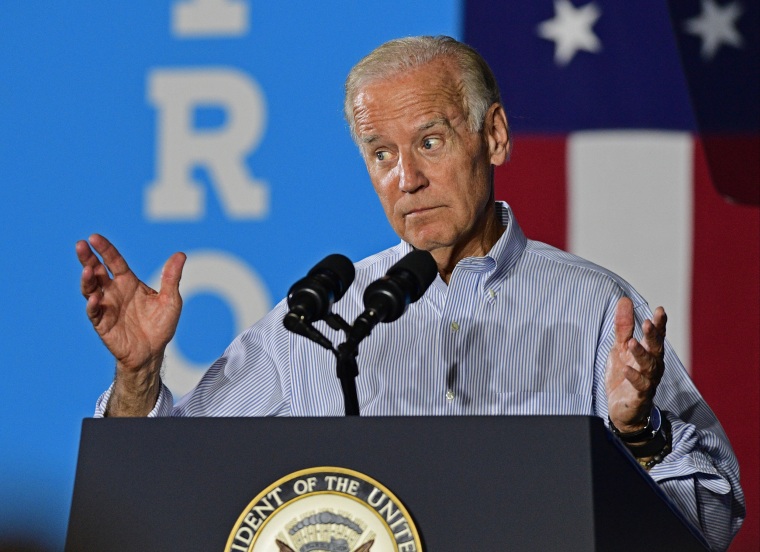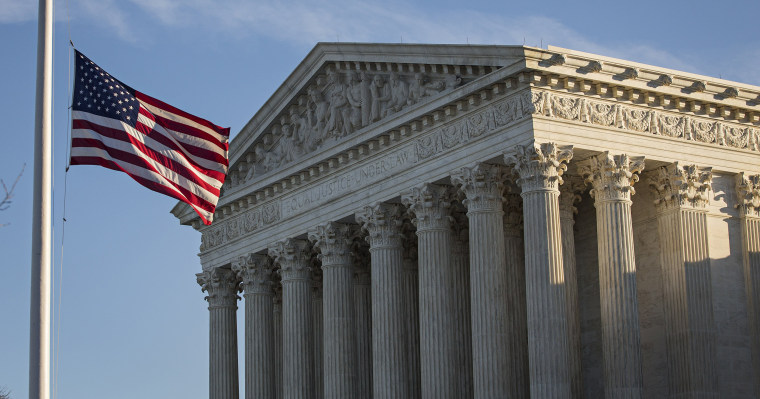Vice President Joe Biden's admonished Republican members of Congress earlier this month to "do their jobs" and grant a long-stalled confirmation hearing to Judge Merrick Garland and warned that delaying a hearing could set a dangerous precedent for the institution
"My friends in the Senate, you don't have to support Merrick Garland, you don't have to support the chief judge in the circuit, vote no. But give him a vote. We're setting an incredibly dangerous precedent in the institution that I love," Biden said on Thursday.

However, some judicial insiders worry that another important related issue — filling vacancies on the federal district and appeals courts — has gotten short shrift as the political theater surrounding Justice Antonin Scalia’s successor drags on. There are currently 96 federal judicial vacancies and 58 nominees pending, according to the U.S. Federal Courts.
While the Supreme Court gets most public attention, it is worth remembering that it only takes up about 1 percent of the cases that make their way to its august chambers.
Many more are decided in federal, district and appellate courts by judges who are appointed by the president and must be confirmed by the Senate. As a result, the languishing nominees awaiting confirmation votes could have a significant impact for years to come.
Related: How Obama Could Win Supreme Court Battle — Even If Republicans Take the White House
Already, the Federal Bar Association, the professional organization for private and government lawyers and judges practicing and sitting in federal courts, has stated that “high numbers of vacancies on the federal bench, coupled with increasing caseloads, are creating significant and unprecedented obstacles for the prompt administration of justice in our federal courts.”
There currently are 12 vacancies on the powerful circuit courts of appeals and 75 on the lower district courts. The remaining vacancies are on the U.S. Court of International Trade or the U.S. Court of Federal Claims.
Russell Wheeler, an expert on the federal judiciary and visiting fellow in governance studies at the Brookings Institution, said some of the nominees who have cleared the committee have been awaiting confirmation votes since the middle of last year.
"It’s a very slow pace," he said.
Wheeler said the situation is especially bad in Texas, which has "10 or 11 vacancies that don’t even have nominees. ... I think in Texas it’s difficult to get a civil case heard now because criminal cases get priority."
Related: Replacing Scalia: Look Back at Some of the Rockiest SCOTUS Nominations
Democrats say the reason for the building backlog is pure politics driven by the ideological right.
To understand the politics, though, it’s imperative to understand the procedure.
For decades, it was expected that the president would consult the home state senators of judges put up for nomination, get their approval and then have them shepherd the nomination through the Senate. The unofficial process was meant to help fill vacancies even when political tensions were running high.
But the process has hit a snag.
The reason has something to do with building sentiment among conservatives that finally found voice in a statement issued earlier this year by the influential conservative group Heritage Action, which called on the GOP-led Senate to not allow any more judicial nominees to go forward.
It said the action was justified because Obama “began his final year in office by taking aim at the Second Amendment and unilaterally shredding immigration caps set by Congress without congressional approval,” referring to recent executive actions announced aimed at expanding background checks for gun sales and protecting as many as 5 million undocumented immigrants from deportation.
“Given the Obama administration’s disregard for Congress’ role in our constitutional system of government, the Senate should refuse to confirm the president’s nominees unless those nominees are directly related to our national security,” the group wrote.
Senate Republican leaders have not publicly acknowledged that they are heeding the calls for a blockade on confirmation votes.
Whatever the reason, Democrats say the holdup is extreme.
“Refusing to confirm any judicial nominees for the rest of this year would make the high number of vacancies in our federal judiciary even worse,” Sen. Patrick Leahy of Vermont, the ranking Democrat on the Judiciary Committee, said in a statement earlier this year. “This would hurt the American people and weaken our justice system. We cannot allow this to happen.”
Leahy’s staff has noted that when he was the Judiciary chairman during the last two years of George W. Bush’s presidency, 68 judicial nominees were confirmed by the Senate.
But Republicans on the committee counter that with more than 90 percent of the seats on district and circuit courts filled, the vacancy rate on the federal courts was the lowest of Obama’s presidency in 2015 and among the lowest of the last 25 years.

